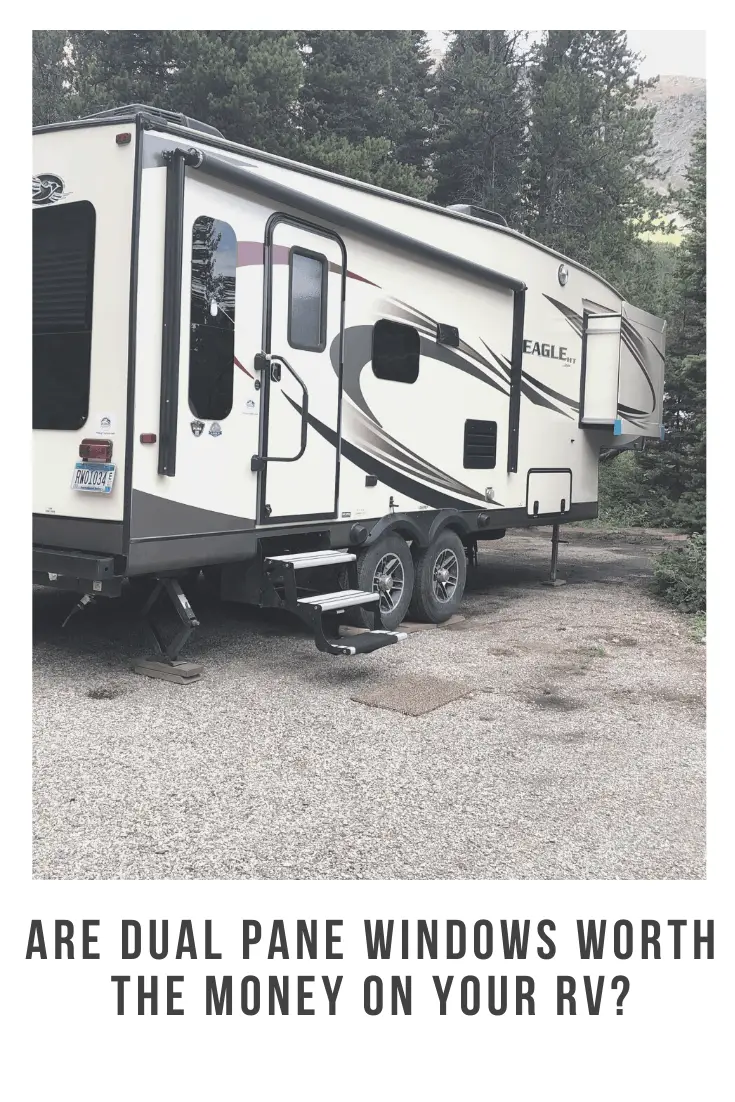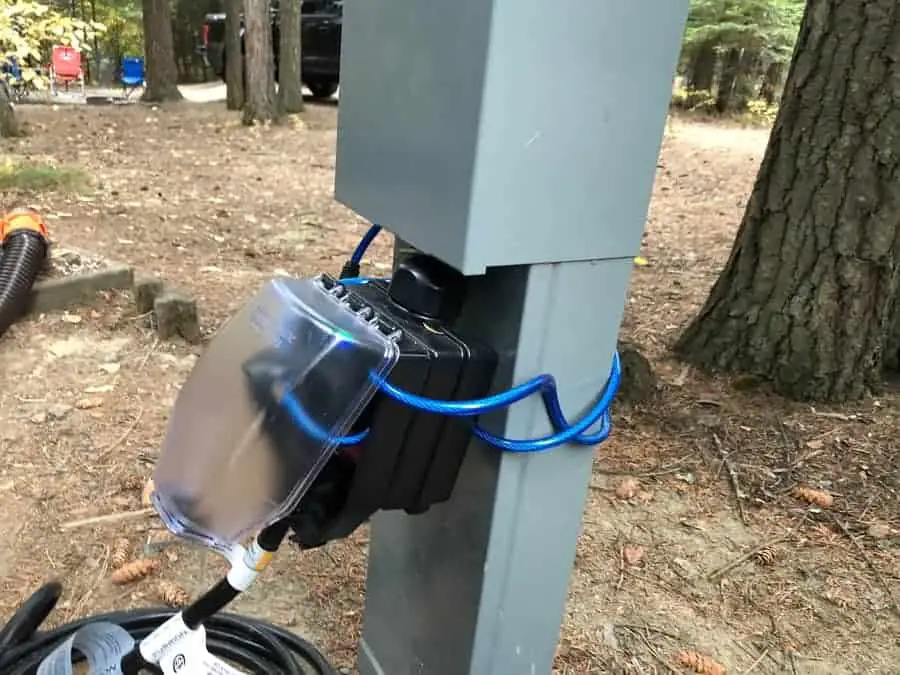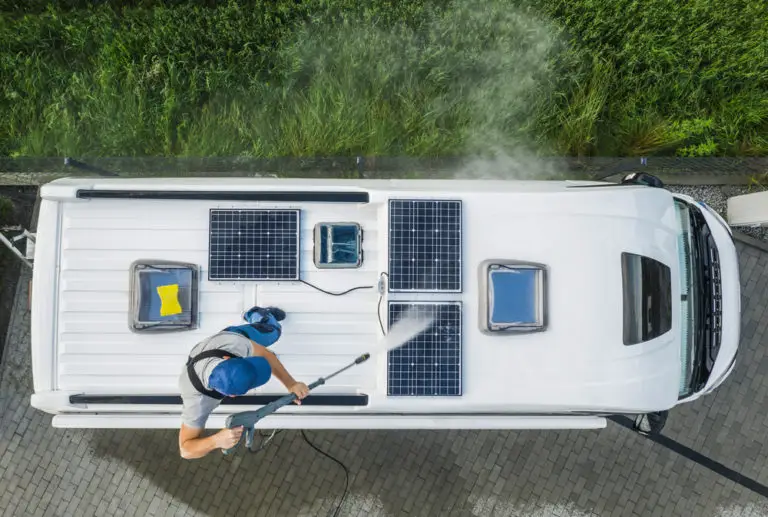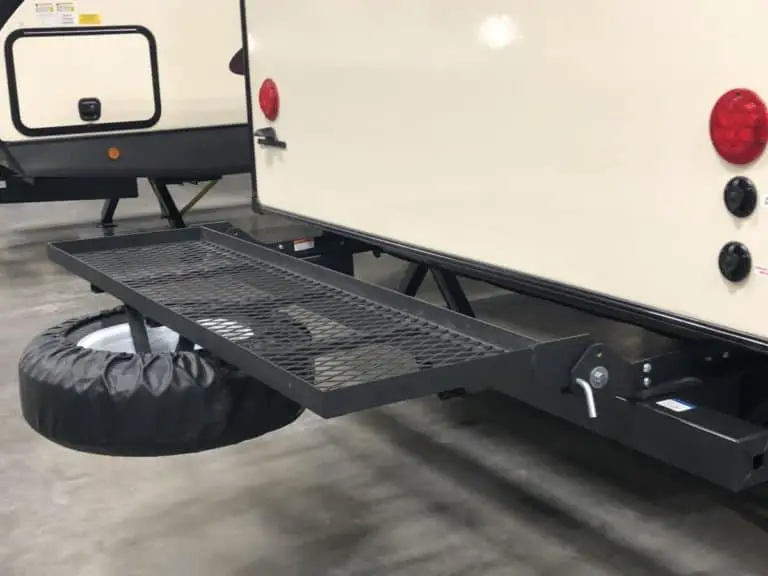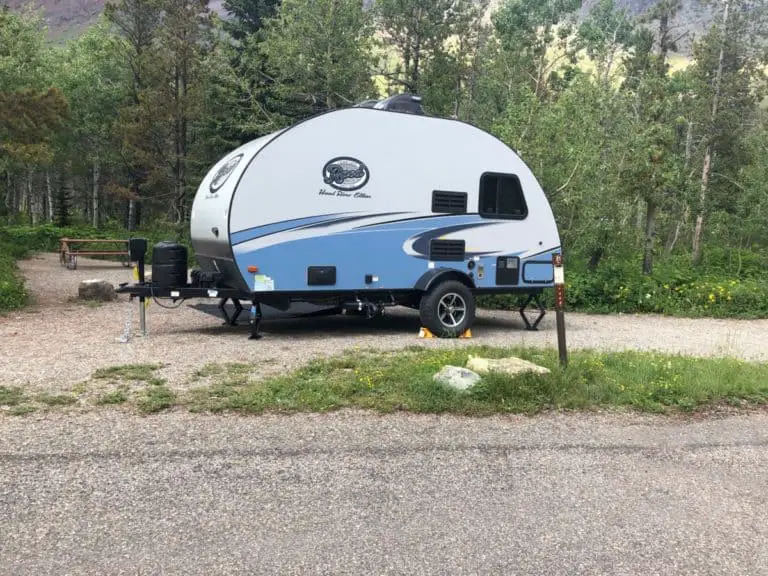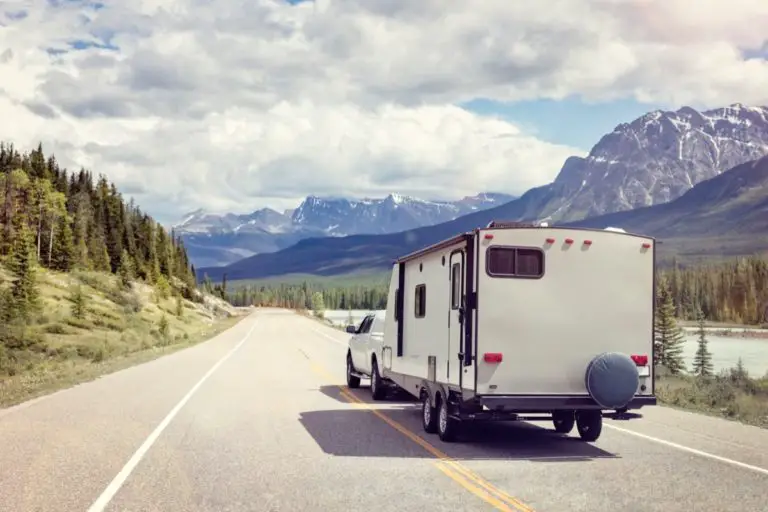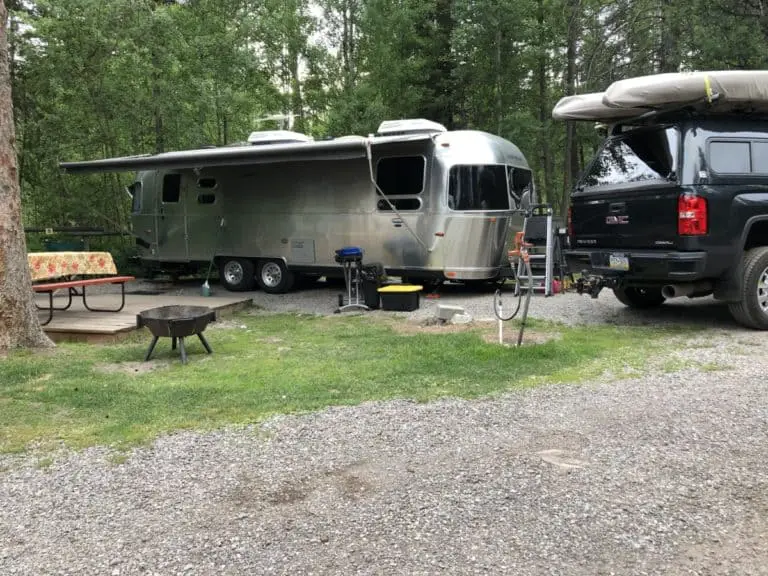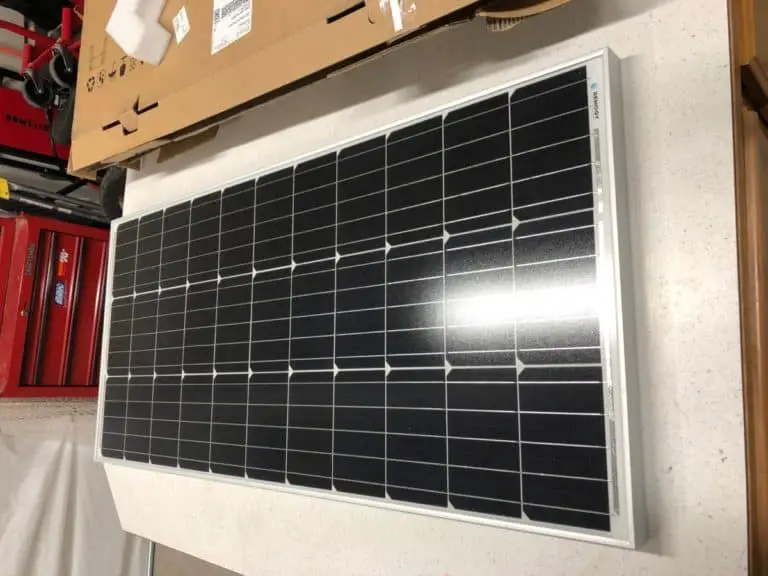Should I Buy a Travel Trailer? The Factors of Ownership

Travel trailers can be a tempting investment due to the convenience and comfort they add to a road trip or vacation away from home. You may have rented or stayed in a friend’s travel trailer and are now wondering if you should purchase a travel trailer for yourself or your family. While asking yourself Should I buy a travel trailer? you may want to consider the pros and cons of ownership.
You should buy a travel trailer if you are into the outdoors, like to travel, enjoy camping, and enjoy being away from civilization and in nature. If you don’t enjoy these items, you may want to forgo the purchase of a travel trailer. There are several factors to consider prior to purchasing such as costs, care, space, and tow vehicle.
Before making the decision to purchase a travel trailer, camper, or RV, there are several factors to think about:
- Cost
- Care and Maintenance
- Storage
- Tow Vehicle
- Questions to ask yourself
Looking into each of the previously mentioned factors, you should know what your own expectations for purchasing a travel trailer are. This should include how long you plan to stay in the travel trailer, how many people will normally be traveling with you, and what type of terrain you plan to travel or camp in.
You should also have some idea of what type of travel trailer you wish to purchase, although this choice does not need to be entirely solidified as it may be influenced by the factors listed. By reading through the factors listed in this article and answering the questions provided near the end, you may be able to make a more informed and clearer decision on whether purchasing a travel trailer is right for you or your family.
Cost of a Travel Trailer
While travel trailers are often significantly cheaper than RVs, they are still a fairly large investment. A travel trailer will cost you anywhere from $11,000-$60,000+ if you choose to purchase it new. A very nice travel trailer can be had in the $25,000 range, but if you are into upscale items, you can expect to spend $50,000+ on a luxary model such as an Airstream.
In addition to this up-front cost, purchasing a new travel trailer includes the often-forgotten costs of things such as insurance, taxes, batteries, hoses, and generators. These additional costs can be well over $2,000 dollars and some of them reoccur yearly or every few years as items need to be replaced. Some or all of these additional costs may be factored into the cost of your travel trailer but that is not always the case, so you should be sure to clearly read and understand any paperwork in the purchasing process.
Luckily for individuals with lower budgets, there is a large market for used travel trailers which are often substantially less expensive and, thus, make travel trailer ownership possible at many different budgets. If you’re willing to do some renovations yourself, you can find travel trailers listed for as low as $2,000 on websites such as rvtraders.com.
That being said, this same website also has some slightly more expensive used travel trailers that need little to no repairs or additional work. Some important things about taking on the cost of travel trailer ownership include being aware of your budget, making sure to consider additional costs and fees, and ensuring you can afford annual fees such as repairs or storage fees.
We estimate that you should expect to spend anywhere from $20 to over $400 on your trailer monthly depending on the type of trailer, how often you use it, and where you store it. If you are curious about what costs are factored in, read the whole article here. If you do decide that travel trailer ownership is for you, it is important to lay out a clear and realistic budget, and to plan for all costs, not just the cost of purchasing the travel trailer itself.
Travel Trailer Care and Maintenance
Travel trailers require frequent maintenance and year-round care. This maintenance and care is not only a cost that must be considered but also, a time commitment when owning a travel trailer.
Some general maintenance that you must perform on your travel trailer, regardless of use or exposure to the weather, include roof maintenance, cleaning, and tank maintenance.
Additionally, it is highly recommended that prior to any long-distance trip travel trailer owners go through the unit to ensure that all parts of the trailer are in working order. This differs from if you were to rent a travel trailer temporarily or for a single trip because in the instance of rental your expectation would be that this care and maintenance was done prior to the travel trailer’s rental. Thus, it may be easier, a lower time commitment, and more cost-effective for people who only have one travel trailer trip planned or are not sure they would use the trailer regularly to rent.
Similarly, if you live in certain areas you may have to perform more maintenance seasonally. For example, in areas where the temperature drops below freezing you would need to winterize your travel trailer. It is important to consider this additional maintenance that the region you live in will add to travel trailer ownership and whether your local weather will limit the season in which you can safely use your travel trailer. Ultimately, like the cost, the time and expense of care and maintenance for your new travel trailer must be weighed when considering the purchase.
RV Storage
Another factor to consider when deciding whether to purchase a travel trailer is the way that it will fit into your current lifestyle. Two aspects of this you should consider are the vehicle that you currently have available to pull a travel trailer and the space you have for storage of a travel trailer.
The actual amount of space you need or required strength of your vehicle depends largely on the type of travel trailer that you intend to buy. Types of trailers can be classified by these four categories: travel trailers, fifth wheels, expandable hybrid trailers, teardrop, and toy haulers.
While teardrop trailers are smaller, thus require less space, each of the other trailer types may require a large area to store them in the offseason. For example, a full-sized fifth wheel or toy hauler trailer can be up to forty feet in length and over fifteen thousand pounds in weight. Even the smaller teardrop trailers require some space as they can be up to 20 feet in length including the tongue and between five and eight feet in width. Thus, the type of trailer, and how the type you want will fit with your lifestyle, should be considered before you embark on travel trailer ownership.
With the type of travel trailer you are considering purchasing in mind, you should first consider the amount of space that you have to store the travel trailer. This requires identifying places that you can potentially park your travel trailer when you are not actively on a trip. Then, recalling what was mentioned in the section on care and maintenance, if you live in a region with extreme weather and want to keep your maintenance costs lower, you should ensure that you have ample parking space, such as a carport or cover, for your travel trailer as well.
Of course, as with all considerations of owning a travel trailer, there are alternatives. An alternative for off season parking, if you are short on space, would be to rent a space to park your travel trailer at a storage facility. Storage facilities have numerous options including outdoors, covered, or fully climate controlled and enclosed at varying price points dependent on your travel trailer’s size and the region in which you are located.
We pay $50 per month for outdoor storage. That being said, if this is an option you are considering for your travel trailer, these storage facilities are fairly common and should not be difficult to find. However, if you do plan on using one of these storage facilities, either due to convivence or lack of adequate space in your own yard, you should make sure to factor the additional cost of yearly storage into your budget for the travel trailer.
Another factor even if you pay for storage elseware is do you have enough space to park your trailer in your driveway or in front of your house when you want to bring it home and load it. We have a tight area to back our travel trailer into and if we had a 25′ or greater model we could not fit it in our driveway.
Tow Vehicle Type
Another lifestyle factor to consider for the purchase of your travel trailer is whether your current vehicle can adequately tow the travel trailer. Like with the parking consideration, this will largely depend on the type of travel trailer that you are planning to purchase, as all the different types vary in weight; thus, they will require different vehicle strengths to pull them. It is largely recommended that travel trailers are pulled by trucks, for the safest travel. The tow vehicle chosen to pull your travel trailer should be very stable, and the trailer should only be about 80% of the capacity of what the truck can pull.
One aspect of engine strength to consider is whether the truck can pull the trailer on the terrain where you plan to camp. Many trucks will be able to pull a travel trailer at normal speeds along flatter roads but when faced with an incline are unable to properly tow the travel trailer. Thus, if you are looking into purchasing a travel trailer and you currently drive a car or a smaller truck you may have to consider purchasing a new vehicle to safely tow the travel trailer. Even though your tow vehicle may be rated to tow 8,000 pounds, that doesn’t mean you should be towing 8,000 pounds. Even if the engine is large enough, other factors come into play such as tire load rating, braking capabilities, frame strength, and others.
Questions to ask yourself
These factors can be narrowed down into a list of questions to ask yourself and thoroughly answer prior to finalizing the decision to purchase a travel trailer or beginning the shopping process. The first of these questions is:
What is your budget?
Budget will influence not only your type of travel trailer, but also how you store it, how much of the maintenance you’ll need to do yourself, and whether you buy a new or a used travel trailer.
Do you have time for the upkeep and maintenance of a travel trailer?
If you answer no to this question but you have a budget on the higher side, then you may be able to pay someone else to do these repairs and yearly maintenance. However, if you answer no to this question and have a budget on the lower side purchasing a travel trailer may not be right for you or your family at this time.
Where will you store your travel trailer?
This question, like the previous one, must be considered in relation to your budget because, if you don’t have adequate space to store your travel trailer, a higher budget may allow you to pay for storage space. Additionally, if your answer is that you have an unprotected, outdoor storage space then you may consider the need to set aside more money for the maintenance of your travel trailer.
Do you have the ability to tow a travel trailer safely?
As with the other questions, if your budget is higher you may be able to solve the problem that having a smaller vehicle presents by purchasing a new vehicle to tow the travel trailer as well as purchasing the trailer itself. However, with a larger budget, but without an adequate vehicle, you may also want to consider purchasing an RV instead of a travel trailer that needs to be towed because, unlike a travel trailer, an RV is driven like a vehicle and does not need to be towed.
Once you have answered all of these questions and come close to a conclusion about whether or not purchasing a travel trailer is right for you, you may be overwhelmed by what steps to take next and all of the different factors that you need to consider.
Beginning the Purchasing Process
Like with any big purchase, it is important to fully research all of your options and decide which option is the best fit for your need. The first choice you should make is the type of travel trailer that you wish to purchase, and this will largely be based on the questions you just answered and what you plan to do with the travel trailer. We recommend determining how long you plan to stay in the travel trailer at a time and how many people will be staying because this may impact the amount of space that you need and the type of travel trailer that you choose to purchase.
Next, you should begin by looking at travel trailers whether online or in person to determine which features are important to you. At this time, you should try to walk through at least one or two travel trailers, especially if you haven’t yet stayed in the type of travel trailer that you plan to buy. It also may benefit you to walk through a few travel trailers that you are not interested in so that you can better understand features you do not want in your travel trailer, and which of these features you consider a deal breaker.
One recommendation for when you near the point of being ready to finalize your travel trailer purchase is to ensure that you’re purchasing your travel trailer from a reputable dealer or source. This is a big purchase and make sure you do the same due dilligence as you would when buying a house or a car.
Check dealer reviews to ensure you are being dealt with honestly and that everything in the travel trailer meets your expectations before signing the final paperwork. Always complete a walk through inspection BEFORE you sign any papers. This may involve a final walk through your travel trailer and determining how many of the additional, often hidden, costs are included in the sale price.
Choosing Not to Purchase
If, after considering these factors and answering the previous questions, you realize that purchasing a travel trailer is not the correct decision for you or your family, or that this is not the right time for you to commit to such a large purchase, you can still replicate the experience. One such option is to rent a travel trailer for a one-time trip.
Renting a travel trailer will provide you with a similar experience but at a more affordable cost and without the commitment of storage and maintenance. Based on the information provided on rvshare.com, renting a travel trailer for a family of five normally costs between one hundred and two hundred dollars a night.
Another added benefit of renting a travel trailer is that it will give you more experience with the travel trailers before committing to a larger purchase. It may also allow you to determine if a smaller, more affordable, travel trailer would work for your family, thus help you to purchase a travel trailer in the future, even if it is not currently the best option for you.
Conclusion
Ultimately, like with all major purchases, you must research thoroughly before committing to the purchase of a travel trailer. This research should be guided by the categories and questions presented in this article, as well as centered around your expectations and goals for your travel trailer experience. Whether at the end of your research, you choose to purchase a travel trailer or opt not to, there are numerous options for positive travel experiences in a travel trailer including both ownership and rental. Happy travels!
Be the first to be notified about FREE tips, hints, coupon codes, and email-exclusive information. All for FREE!



